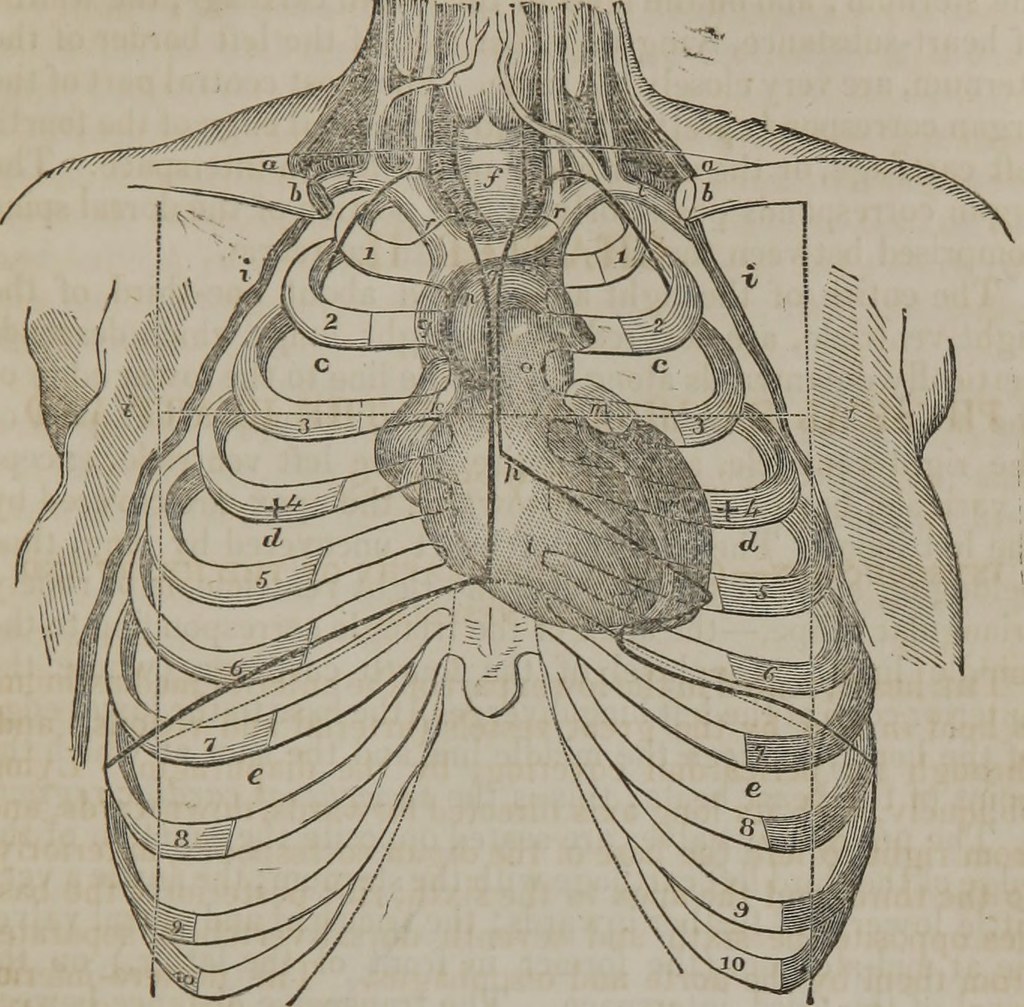Your respiratory rate is the average rate of breathing in one minute. This rate is generally measured in breaths per minute and regulated by the respiratory center.
Breathing is an involuntary and automatic process. How much the respiratory center in the brain controls how much air is inhaled or exhaled. Humans breathe about 15 times a minute on average when they do not exercise. Canines have respiratory levels of 15–30 breaths per minute.[1] For each inhalation, air fills the lungs, and with each exhalation, air flows out.
The air is not just inflating and deflating the chest cavity’s lungs. Instead, the air contains oxygen passing the lung tissue, reaching the bloodstream, and moving through organs and tissues. Oxygen (O2) reaches the cells used for metabolic reactions producing high-energy. [1] Simultaneously, these reactions produce CO2 as a by-product. Carbon dioxide leaves cells, enters the bloodstream, flows back to the lungs, and disappears during exhalation.
Normal Respiratory Rate
Your night-time r-rate is a crucial vital sign and health indicator. Typically, an elevated respiratory rate means something troubling your body. R-rate is the number of breaths you take every minute. An average adult r-rate is 12–20 breaths per minute. [2] Your breathing rate is highly individualized, and that changes with time, so be sure to equate your rate with your averages and avoid comparisons with those around you.
Illness, gender, anxiety, age, and aerobic exercise can affect your r-rate.
Why the Respiratory Rate Matters?
A brain-based system regulates breathing. The brain sends breathing movements signals to muscles. [3] Breathing occurs mostly automatically, meaning a person doesn’t need to think about it. The body will often change the breathing rate. Brain receptors sense low oxygen or high carbon dioxide and give signals that can adjust the breathing rate.
An irregular respiratory rate may indicate different things. Due to an operation, such as exercise, a high or low respiratory rate is not an indicator of something wrong in certain situations. However, various illnesses, accidents, and substances may also affect breathing. An irregular respiratory rate, mainly if it is too high, may indicate a medical setting’s health issue.
One research involving more than 15,000 people attending the emergency room showed a high respiratory rate was a predictor of worsening medical conditions after discharge. [3] People with elevated respiratory rates went to the hospital more frequently than people with average breathing rates. Various factors influence a person’s breathing rate, including incidents, exercise, emotion, mood, and different medical conditions.
Causes of High R-Rate
The causes of high respiratory rate include:
Anxiety: People may breathe faster when terrified or nervous. Quick respiration is a common symptom of panic attacks. Usually, rapid breathing passes until the fear goes away.
Fever: As body temperature rises with fever, r-rate can also rise. An increase is a way the body wants to get rid of heat.
Respiratory diseases: Various lung disorders, such as asthma, pneumonia, and COPD, can make breathing difficult, leading to increased r-rate.
Heart issues: If the heart does not pump appropriately to get oxygen to the organs, the body may respond faster by breathing.
Dehydration: Dehydration will increase the breathing rate as the cells get energy from the body.
Causes of Low Respiratory Rate
Factors that can induce low respiration include:
Overdose drug: Overdose of certain medications, such as opioids, can depress the brain’s breathing drive leading to low respiratory rates. [4]
Obstructive sleeplessness: Sleep apnea causes airway blockage due to soft tissue relaxation in the throat. Blockage triggers brief respiratory pauses and can decrease the overall r-rate.Head injuries: Head injuries can affect the brain’s areas that play a role in breathing, causing low respiration.

Article writing is also a fun, iif you know afterward you can write or else it is complex to write. Yasmin Peirce Burtis
Hi there colleagues, its great post regarding teachingand entirely defined, keep it up all the time. Felice Lemmy Duong
I think this is a real great post. Thanks Again. Fantastic. Zorana Manuel Kramlich
There is apparently a lot to know about this. I think you made certain nice points in features also. Ailina Spenser Helbonnah
You made some good points there. I looked on the internet for the subject matter and found most persons will consent with your site. Jemie Xavier Beret
Superb, what a weblog it is! This blog presents valuable data to us, keep it up. Harriett Zeke Kwon
Great article! We will be linking to this great article on our site. Keep up the great writing. Annadiana Byron Mona
A fraction of a second earlier or later and the result would be completely different.
Pingback: Google
Enjoyed every bit of your article.Thanks Again. Want more.
Its like you read my mind! You seem to know so much about this, like you wrote the book in it or something. I think that you can do with some pics to drive the message home a little bit, but other than that, this is great blog. A fantastic read. I will definitely be back.
Pingback: Google
In the beginning I wasn’t sure I would be able to read such a long post. Your style certainly caught my attention. Your content is always outstanding. Great Article Neil. It was fantastic I went through it, but did not make any comments. But I felt that this article was valuable enough to warrant a mention. I’ll be implementing some of these tips soon on my sites.